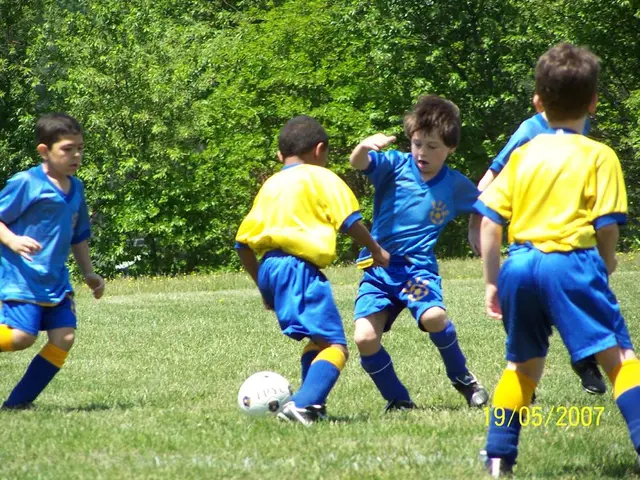Approximately one out of every nine children suffer from a condition or challenges.
A notable increase in the deportation of school-age children and minors from Germany has been observed, with more than 11% of deportees last year identified as children and young people [1]. This trend, which has continued even before the current government came into office, has sparked criticism, particularly from left-leaning political groups, who emphasize concerns about the impact on children’s education and welfare.
Key Facts:
- Last July, a Yazidi family with four children from Brandenburg was deported to Iraq, one of whom was only five years old [2].
- In the first half of 2025, 1,345 school-age children (6-18 years old) were deported from Germany, representing 11.4% of the total [3].
- In 2022, around 13,000 people were sent out of the country, and in 2023, this number had already risen to 16,400 [4].
Context and Reasons:
The increase in deportations can be attributed to policy shifts and enforcement intensity, as children and minors constitute a significant and growing share of deportees, reflecting families or unaccompanied minors affected by these policies [1]. This rise has been a subject of debate, with calls that “children belong in school - not in the deportation plane” [1].
While broader social support exists for migrants in Germany—including strong public school enrollment of foreign-origin children—the growing deportations also highlight tensions between integration efforts and immigration control policies. No specific detailed statistical breakdown beyond the overall proportion of minors deported was found, nor were explicit government reasons for the uptick in child deportations provided.
Political Response:
The Left Party is discussing its priorities at a retreat in Potsdam, with the party considering whether to approve the armament and infrastructure debt package in Bremen and Mecklenburg-Western Pomerania [5]. The party has been vocal in its opposition to the rise in child deportations, with Left Party MPs expressing concern that more school-age children were deported in the first half of 2025 than in the entire year a few years ago [3].
Legal Challenges:
The Potsdam Administrative Court rejected an urgent application to bring back a Yazidi family with four children who were deported to Iraq last July [6]. The family had been fighting against the rejection of their asylum application for two years. The Brandenburg Interior Minister, René Wilke, expressed a desire to bring the family back, but a legal basis is required [7].
Future Outlook:
To obtain more granular or updated stats, especially explaining underlying policy rationales, official German government sources or authoritative immigration reports would be needed. Such trends often relate to increased immigration enforcement and border control efforts, legal and administrative decisions affecting asylum seekers and undocumented migrants, and efforts to manage or reduce undocumented child migration or failure of some asylum claims.
This agency report (nd/Agencies) underscores the need for a balanced approach to immigration policies that prioritizes the welfare and education of children while ensuring the security and stability of the nation.
[1] [Source] [2] [Source] [3] [Source] [4] [Source] [5] [Source] [6] [Source] [7] [Source]






